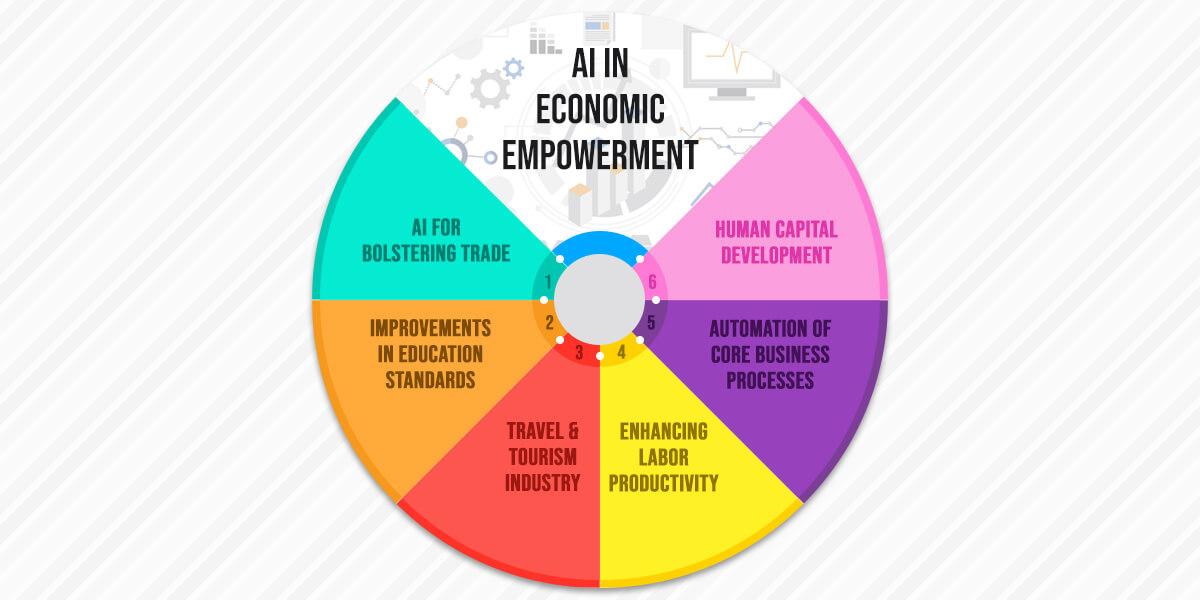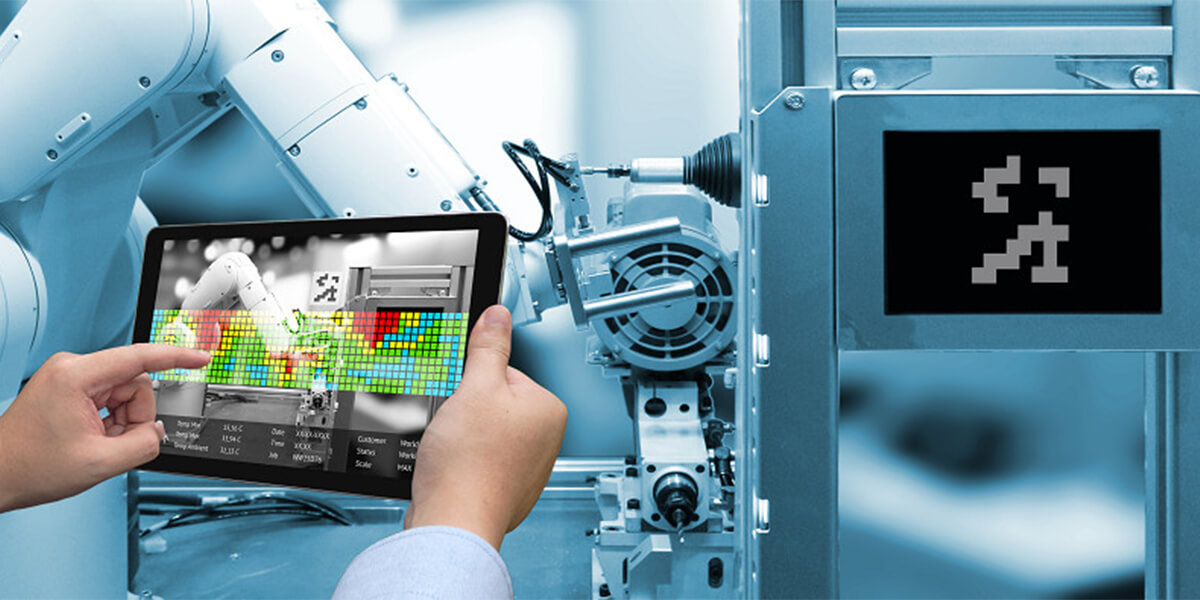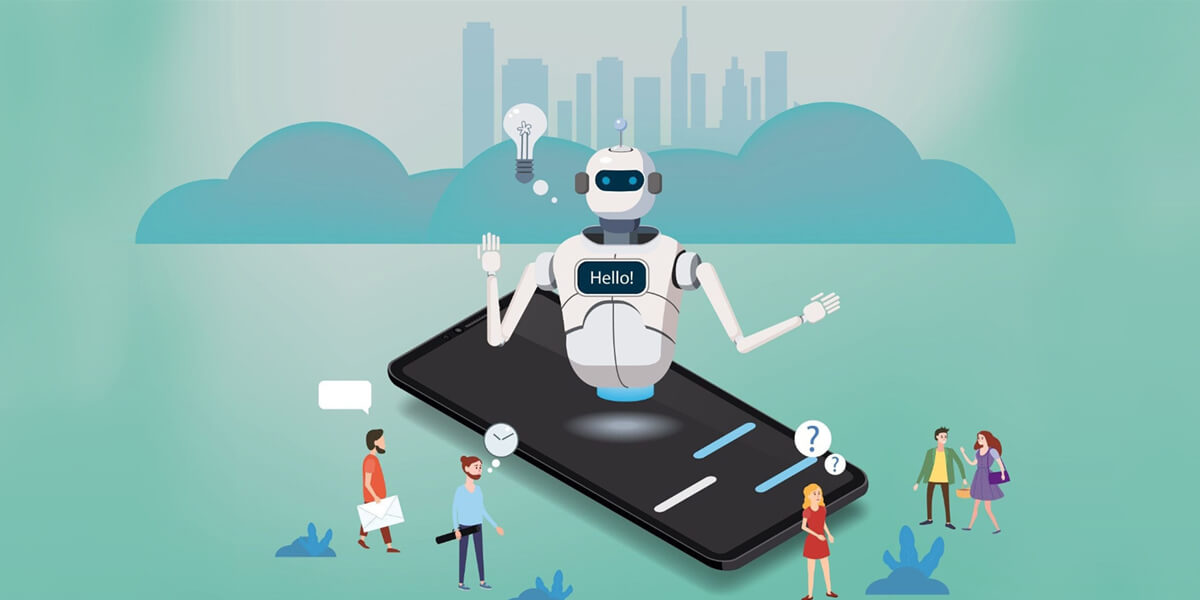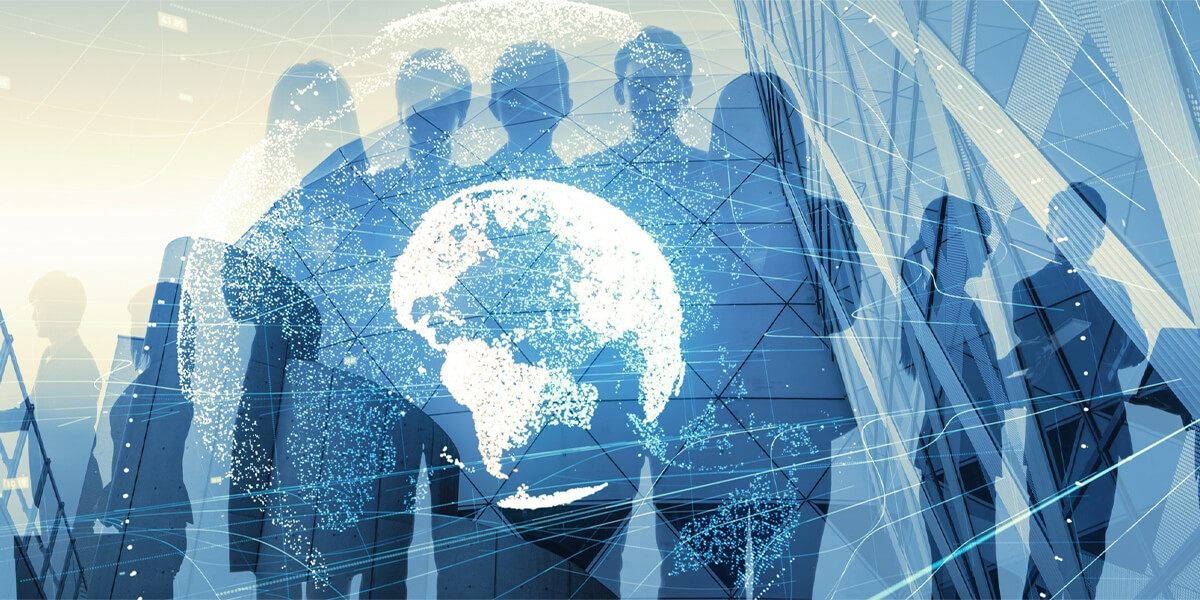AI is a two-edged sword when it comes to building resilient economies. Deployment of artificial intelligence can boost economic growth and development, create new products, and enhance overall productivity. According to an estimate by Mckinsey, artificial intelligence would add approximately US$ 13 trillion (or 16%) to the world’s Gross Domestic Product (GDP) by the end of 2030. It means that AI will contribute about 1.2% to the annual productivity growth every year until 2030.
Following domains are receiving tailwinds from artificial intelligence:

Improvements in Education Standards
The current education system fails to consider the geographical distribution during the education resource planning process. Artificial intelligence will allow governments to utilize crucial data and ensure equal distribution of education resources throughout the population. Moreover, higher quality education through AI will allow the matching of teachers with students.
AI for Bolstering Trade
The accuracy of market forecasts has improved owing to artificial intelligence. Several companies are employing AI-powered analysis to build portfolios and generate investment ideas. Moreover, exchange firms and traders are using artificial intelligence for getting higher returns and mitigating potential risks.

Photo Credit: Global Trade Mag
Automation of Core Business Processes
The use of artificial intelligence for automating core business processes such as recruitment will save considerable costs for business owners. In future, other core business functions such as inventory, accounting, marketing, and management will be automated using AI. The role of AI in the development of new products and business models will be pivotal in the near future.
AI in the Travel and Tourism Industry
Online customer services and chatbots have taken the tourism industry by storm. AI enables faster response times for customers through instant messaging apps, social media platforms, apps, and websites. On the other hand, face-to-face customer service with the help of AI-powered robots is the emerging area of AI in hospitality.

Photo Credit: Shutterstock
Enhancing Labor Productivity
AI can boost labor productivity by at least 40%, as per a study by Accenture. Through cybersecurity, decision making, automation, and data collection, at least a 38% increase in profitability can be realized. This in turn frees up precious time which could be delegated for other urgent tasks at hand. Therefore, AI is an essential tool for enhancing labor productivity.
Human Capital Development
Artificial intelligence will revolutionize human capital development by reshaping learning and high-quality education. The investments in this arena will be more targeted and customized. For instance, EdTech companies such as Udemy, Andela, and Coursera will integrate AI in their online courses. Therefore, AI will be essential in upskilling recommendations.
AI for Economic Empowerment: The Way Forward
It is necessary to be the front-runner in AI technology to not only survive the competition but to also beat it. Leading economies should focus on creating a future where machine intelligence and human intelligence can co-exist. They need to evaluate the skills and knowledge imparted in schools and colleges in order to prepare the next generation.
Additionally, leaders must create self-improving laws that would bridge the gap between regulatory response and technological change. They should develop best practices and tangible standards to utilize artificial intelligence. While it is true that AI would automate certain jobs, it’s also a fact that it will create new jobs. Countries should thus train people for new skills, create new digital industries, and nurture innovation ecosystems.
Conclusion
The effects of AI on the economy will be witnessed over the course of time. Full realization of artificial intelligence necessitates substantial investments and innovations. In the future, the wider deployment of artificial intelligence will include smart healthcare, intelligent personal assistants, and self-driving cars. Artificial intelligence is likely to follow the S-curve similar to older technologies like computing, electricity, and steam engine.

